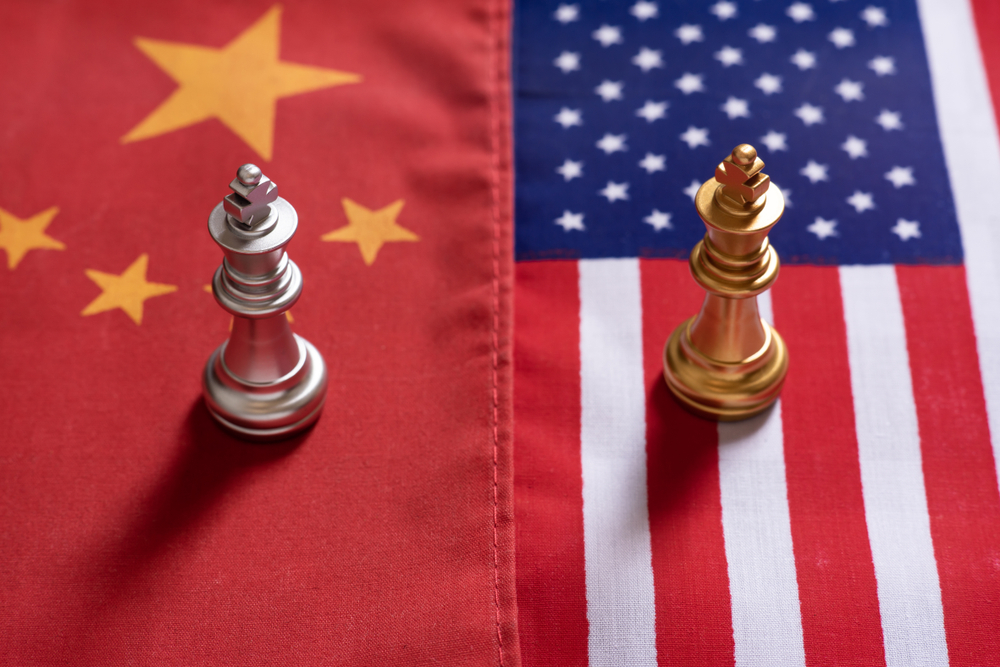President Joe Biden took another step towards limiting certain US investments in high-tech sectors in China, citing national security concerns.
This new executive order targets three main sectors: semiconductors and microelectronics, quantum information technologies, and AI systems.
The US government has enforced multiple regulations to restrict trade with China over the past few years, in-keeping with a 25-year-long policy of ensuring the country remains ‘two generations behind’ the US.
In October, the Biden administration limited the export of high-end AI GPU chips in a bid to keep the US on the front foot with generative AI.
These executive orders don’t always achieve the desired effect, however. For instance, in August 2022, a report by The Register found that some 94% of exports to China were given the green light despite restrictions.
Biden’s latest order ramped up discussions surrounding the future of US investment “in sensitive technologies and products critical to the military, intelligence, surveillance, or cyber-enabled capabilities.”
These latest regulations primarily concern private equity, venture capital, and joint venture investments. The government expects to be notified of most investments that fall under the order, and certain transactions will be prohibited.
Central to the order’s focus is Chinese companies developing chip-designing software and manufacturing tools – a domain largely dominated by the US, Japan, and the Netherlands.
China is pushing to build a domestic chip manufacturing industry but is still almost wholly reliant on imports.
Political and economic consequences
Although this could heighten the tensions between the two global superpowers, US officials stressed that the main objective is to tackle “the most acute” national security risks rather than severing all forms of revenue-generating export activity.
After all, China is a big buyer of US technology – so sacrifices extend in both directions.
Senate Democratic leader, Chuck Schumer, lauded the President’s decision, reinforcing the importance that “American investment does not go to fund Chinese military advancement.”
A representative from the Chinese embassy in Washington expressed their disappointment, suggesting that the restrictions might negatively impact both Chinese and American firms. Liu Pengyu stated, “China will closely follow the situation and firmly safeguard our rights and interests.”
China’s commerce ministry was more critical, accusing the US of jeopardizing global industry and supply chains. A ministry spokesperson highlighted that such moves contradict the free market principles and fair competition that the US has historically endorsed.
Emily Benson from the Center for Strategic and International Studies (CSIS) anticipates certain AI investments, especially those directed at military applications, to be banned, with other investments in the sector requiring governmental notification.
Benson highlighted the administration’s challenge in differentiating between military and non-military AI applications and accurately defining AI.
Chinese big tech powerhouses secure $5bn in Nvidia Chips
China’s leading corporations are continuing to stock up on Nvidia’s high-performance chips.
Baidu, ByteDance, Tencent, and Alibaba have ordered $1bn in chips to be delivered this year, with another $4bn worth to be delivered in 2024, according to the Financial Times. This includes around 100,000 A800 chips for delivery this year.
The A800 is a modified GPU designed specifically for the Chinese market – essentially a weakened form of Nvidia’s flagships. Small quantities of high-end H100 and A100 chips are making it to China and appearing in a thriving black market where they sell for almost double the retail rate.
In June, Nvidia’s head of finance commented that any potential restrictions on AI chip exports to China could lead to “a permanent loss of opportunities for the U.S. industry.”
This massive GPU order may provide China’s tech industry enough computing power to see it through until its domestic chip industry fires into action.
The race for AI supremacy has only just started.





